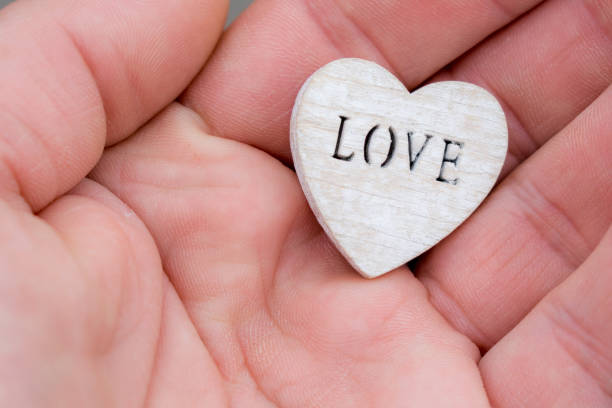
Introduction
In an age marked by consumerism and material abundance, minimalism offers a refreshing counterbalance. Minimalism, a lifestyle choice centered around simplicity and intentional living, focuses on reducing clutter and prioritizing what truly matters. This comprehensive guide explores the benefits of minimalism and provides practical advice on how to embrace it, offering insights into how simplifying your life can lead to greater happiness, fulfillment, and well-being.
Understanding Minimalism
What is Minimalism?
Definition and Philosophy
- Core Principles: Minimalism is a lifestyle philosophy that emphasizes the importance of living with fewer material possessions, focusing instead on experiences, relationships, and personal values. It advocates for simplifying life to reduce distractions and enhance quality of living.
- Origins: Minimalism has roots in various cultural and philosophical traditions, including Eastern philosophies like Zen Buddhism and the minimalist art movement of the 20th century. Its modern form has gained popularity through books, documentaries, and personal anecdotes.
The Minimalist Mindset
Intentional Living
- Purpose and Meaning: At its heart, minimalism encourages living with intention and purpose. It involves making deliberate choices about what to keep and what to discard, aligning possessions and activities with core values and goals.
- Mindfulness and Awareness: Minimalism fosters mindfulness by encouraging individuals to reflect on their needs and desires. It promotes a heightened awareness of how material possessions and lifestyle choices impact overall well-being.
Benefits of Minimalism
Mental and Emotional Well-Being
Reduced Stress and Anxiety
- Clutter and Stress: Physical clutter can contribute to mental clutter, leading to feelings of stress and overwhelm. Minimalism reduces clutter, creating a more organized and peaceful environment that can alleviate stress.
- Simplified Decision-Making: By reducing the number of choices and possessions, minimalism simplifies decision-making, leading to lower levels of anxiety and decision fatigue.
Enhanced Focus and Productivity
Improved Concentration
- Decluttered Environment: A minimalist environment with fewer distractions promotes better focus and concentration. Reduced visual clutter can help improve productivity and mental clarity.
- Streamlined Routines: Minimalism encourages streamlined routines and systems, which can lead to greater efficiency and effectiveness in daily tasks and responsibilities.
Physical and Financial Benefits
Financial Savings
- Reduced Spending: Adopting a minimalist lifestyle often leads to decreased spending on non-essential items. By prioritizing needs over wants, individuals can save money and make more mindful financial decisions.
- Less Maintenance: Fewer possessions mean less time and money spent on maintenance, organization, and cleaning. This can lead to long-term financial savings and reduced financial stress.
Environmental Impact
Sustainability
- Eco-Friendly Choices: Minimalism encourages making sustainable and eco-friendly choices. By consuming less and focusing on quality over quantity, individuals can reduce their environmental footprint and contribute to a more sustainable world.
- Waste Reduction: Embracing minimalism often leads to reduced waste production, as individuals become more conscious of their consumption habits and the lifecycle of their possessions.
How to Embrace Minimalism
Decluttering Your Space
Assessing Your Possessions
- Evaluation: Begin by evaluating your possessions and determining what items are truly essential and meaningful. Use criteria such as usefulness, emotional value, and frequency of use to assess each item.
- The Marie Kondo Method: Consider using the KonMari Method, popularized by Marie Kondo, which involves decluttering by category and keeping only those items that “spark joy.” This approach can be an effective way to simplify your belongings.
Organizing and Simplifying
Storage Solutions
- Efficient Storage: Implement efficient storage solutions to keep essential items organized and accessible. Use storage containers, shelves, and labeling to maintain order and reduce clutter.
- Minimalist Design: Embrace minimalist design principles in your home decor. Opt for clean lines, neutral colors, and functional furniture to create a serene and uncluttered environment.
Digital Decluttering
Managing Digital Clutter
- Email and Files: Regularly declutter your digital space by organizing emails, files, and applications. Unsubscribe from unnecessary newsletters and delete or archive outdated documents.
- Digital Minimalism: Practice digital minimalism by limiting screen time, reducing the number of social media platforms, and focusing on quality content that adds value to your life.
Simplifying Daily Routines
Streamlining Activities
- Routine Optimization: Simplify your daily routines by focusing on essential tasks and eliminating non-essential activities. Create streamlined routines for morning and evening to reduce decision fatigue and increase efficiency.
- Prioritizing Self-Care: Incorporate self-care practices into your routine, such as meditation, exercise, and relaxation. Prioritizing well-being contributes to a balanced and fulfilling lifestyle.
Building Minimalist Habits
Intentional Living Practices
- Mindful Consumption: Adopt mindful consumption habits by evaluating your purchases and avoiding impulse buying. Focus on quality over quantity and consider the long-term value of items.
- Gratitude and Reflection: Practice gratitude and reflection to appreciate what you have and identify areas where you can simplify. Regularly assess your lifestyle and make adjustments as needed.
Overcoming Challenges
Common Obstacles
Emotional Attachment
- Letting Go: Emotional attachment to possessions can be a significant barrier to minimalism. Acknowledge the sentimental value of items and find ways to preserve memories without holding onto physical possessions.
- Gradual Approach: Embrace a gradual approach to decluttering. Start with less sentimental items and gradually tackle more challenging categories as you build confidence and experience.
Cultural and Social Expectations
Navigating Expectations
- Social Pressure: Address social pressure and cultural expectations related to material possessions. Communicate your minimalist goals to family and friends and seek support from those who understand and respect your choices.
- Personal Values: Stay true to your personal values and goals, even if they differ from societal norms. Embracing minimalism is a personal journey that reflects your unique priorities and aspirations.
Maintaining Minimalism
Sustaining Your Lifestyle
- Ongoing Assessment: Continuously assess and adjust your minimalist lifestyle to ensure it aligns with your evolving needs and goals. Regularly declutter and reflect on your values to maintain a balanced and purposeful life.
- Community Support: Engage with minimalist communities and resources for inspiration and support. Connecting with others who share similar values can provide motivation and encouragement.
Case Studies and Success Stories
Case Study 1: Simplifying a Busy Professional’s Life
A busy professional successfully embraced minimalism by:
- Decluttering Workspaces: Streamlining office space and digital tools to enhance focus and productivity.
- Mindful Consumption: Adopting mindful consumption practices to reduce stress and save money.
Case Study 2: Transforming Family Life
A family transitioned to minimalism by:
- Organizing Home: Implementing efficient storage solutions and decluttering household items to create a more functional living space.
- Prioritizing Experiences: Shifting focus from material possessions to meaningful experiences and quality time with loved ones.
The Future of Minimalism
Emerging Trends
Minimalism in Modern Living
- Sustainable Minimalism: The integration of minimalism with sustainable living practices is gaining momentum. Emphasizing eco-friendly choices and reducing waste aligns with minimalist principles and contributes to a more sustainable future.
- Digital Minimalism: The rise of digital minimalism reflects the growing awareness of the impact of technology on well-being. Limiting screen time and focusing on meaningful digital interactions are key aspects of modern minimalism.
Holistic Approaches
Integrated Lifestyle Practices
- Mind-Body Connection: Minimalism is increasingly being integrated with holistic lifestyle practices that emphasize the mind-body connection. Combining minimalism with practices such as yoga, meditation, and mindful eating enhances overall well-being.
- Personalized Minimalism: Embracing personalized approaches to minimalism allows individuals to tailor their practices to their unique needs and preferences. Customizing minimalism to fit personal values and goals ensures a more fulfilling and sustainable lifestyle.

Embracing minimalism offers numerous benefits, from reduced stress and enhanced focus to financial savings and environmental sustainability. By understanding the core principles of minimalism, assessing and decluttering your space, and adopting mindful consumption practices, you can simplify your life and enhance overall well-being. Overcoming challenges, maintaining minimalism, and exploring emerging trends can further enrich your minimalist journey. As you integrate minimalism into your life, you’ll discover a greater sense of clarity, purpose, and fulfillment, ultimately leading to a more intentional and rewarding existence.



